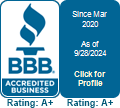
What Happens to Your U.S. Debt If You Leave the Country?
Life does not always go as planned. Whether it is a job that did not work out, unexpected family issues, or visa problems, many people who come to the U.S. for better opportunities leave earlier than expected—sometimes with unpaid debt.
If you are in that situation, you might wonder:
What happens to my U.S. debt if I return to my home country? Will it follow me? Will it affect me in the future?
Let us break it down in simple terms.
Debt Does Not Disappear—Even If You Do
Leaving the United States does not mean outstanding debts from credit cards, personal loans, or student loans are gone. You may be out of reach for a while, but that does not mean the debt disappears.
- The balance remains.
- Interest keeps adding up.
- Creditors may still try to contact you or take action later.
Even if your income stops in the U.S., lenders often wait. Some even sell your debt to international collections agencies, especially if you move to countries like Canada or the U.K.
Can They Still Collect From You Abroad?
In many cases, creditors cannot force you to pay once you are outside the U.S., especially if you don’t have U.S.-based income anymore. However:
- They may still contact you, especially by email or phone.
- Some may file a lawsuit in U.S. courts, which can create legal problems if you return later.
- If the debt is significant, it could be sold to an agency that operates in your home country.
TIP: If you move back and later apply for a U.S. visa or job again, that old debt could cause issues—especially if it leads to a court judgment or collections.
Will It Affect You Back Home?
That depends on your country of residence.
- In most cases, your U.S. credit report doesn’t follow you home.
- But if you apply for a loan with an international bank (especially one with U.S. ties), they might check your American credit history.
- If you ever plan to return to the U.S., unpaid debt can haunt you—especially when applying for credit, renting, or buying a home.
What about Student Loans?
The outcome largely varies based on the kind of debt involved:
- Federal student loans: The U.S. government has more power to collect, especially if you ever earn income from a U.S. source—even remotely.
- Private loans: These loans are difficult for lenders to enforce abroad, but they can still report you to credit agencies and file lawsuits in U.S. courts.
If you plan to return to the U.S. for further studies or work, set up a payment plan before you leave.
What Should You Do Before You Leave the U.S.?
Heading back home with unpaid debt? It is wise to sort things out before you leave. Here is what you can do:
- Speak to your creditors and explain the circumstances. Many are willing to work with you on payment plans or settlement offers.
- Check for debt relief options – You may qualify for programs that lower or settle your debt.
- Do not ignore the problem – Interest and fees can increase quickly.
- Set up online access – Stay in control of your accounts from anywhere.
- Update contact details – So creditors do not assume you are avoiding them and you avoid missing important notices.
What If You Have Already Left and Still Have U.S. Debt?
It is not too late to act. Here is what you can still do:
- Reach out to a debt relief company – They can help you explore settlement or payment options.
- Monitor your U.S. credit report – You can access it from overseas.
- Address the debt now – Especially if you plan to return to the U.S. later.
Final Thoughts: Do Not Let Debt Follow You Forever
It can be distressing to leave the United States with unpaid debt, but you are not the only one. Whether you have to leave suddenly or plan to go home soon, it is crucial to understand your options.
Debt does not disappear, but it can be negotiated, reduced, or even resolved. Taking action now means fewer worries later —no matter where life takes you.
Are you thinking about returning to your home country with unpaid U.S. debt?
We are here to help you explore your options and find a solution that fits—before the debt grows or creates future problems.


